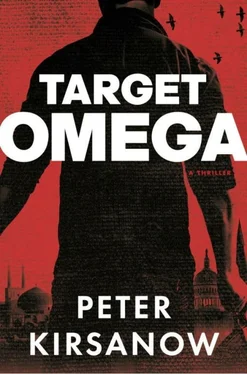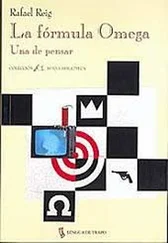Chernin, however, took no satisfaction in the project, in part due to his boss, Aleksandr Stetchkin, head of the Twelfth Chief Directorate of the Ministry of Defense and second only to President Mikhailov as the most feared man in all of Russia.
Stetchkin was perpetually displeased with anything and everything related to the project. When work was temporarily halted because the centrifuge operations at Natanz had been sabotaged with faulty parts, Stetchkin accused Chernin of indolence. After Chernin patiently explained that nothing could proceed without the enriched uranium, he was charged by Stetchkin with insubordination and docked a month’s pay. When a minor earthquake again required a cessation in operations until the structural integrity of the supply tunnels could be verified, Stetchkin blamed Chernin for lack of foresight. Chernin declined to ask how he was supposed to forecast earthquakes.
By any other measure, Chernin had performed brilliantly. But Stetchkin was a man for whom no performance was adequate until the objective was successfully met.
Chernin wondered what his boss would do to him if he knew how he really felt about the project. Chernin saw no benefit to Russia in helping the Iranians. On the contrary, he saw only problems down the road. The mullahs’ wrath was directed at Israel and the West today, but Chernin believed it was only a matter of time before they trained their sights on Russia, too. After all, it wasn’t as if Iranians and Chechens had no common purpose. These fanatics believed they were destined to dominate the world. The project was a major step toward fulfilling that destiny, and the mullahs maintained that they were divinely inspired to build it. Indeed, they took enormous pride in its construction.
Except, the Iranians didn’t build it. The critical parts came from Germany, Belgium, and France. The technicians came from North Korea. And the design, management, and even some of the uranium came from Russia.
Moreover, Chernin had nothing against the Israelis. The tiny state never threatened to annihilate anyone. They weren’t out to take over the world. When he looked into the eyes of an Israeli, he didn’t see the seething hatred he often saw in the eyes of the lunatics here.
Not that Chernin disliked the Iranian people generally. He found most of them to be little different from people everywhere — friendly, industrious, and concerned about their families. He had made several friends here, including one of his closest — Mansur, with whom he shared a fondness for premium cigars, Smirnoff, and Iranian caviar.
The mullahs and their followers were another matter. They didn’t even attempt to hide their contempt when he interacted with them. His presence was tolerated only because they needed him; without him they couldn’t achieve their goal. Once it was achieved, he would be seen as just another infidel, with little to distinguish him from the apes and pigs that inhabited Israel and the other countries in the West.
Chernin had abandoned most pretenses by now. At first, he hid his drinking, in large part because Stetchkin had forbade it as offensive to the Iranians. But as his antipathy toward the hard-liners grew, Chernin made a show of drinking openly, daring anyone to say anything to him. The Tokarev was an additional touch, an affect in which he secretly found great humor.
Soon the project would be completed. Most of the essential work was already done. He estimated that they were only days away from being fully functional. Then he would go home, stroll down Nevsky Prospekt, and look at women who weren’t covered from head to toe in burlap bags.
The phone buzzed. Chernin picked up the receiver with his right hand, took a swallow of vodka from the glass in his left, and prepared to listen to an inventory of his infirmities. To his surprise the call was brief and Stetchkin was not unpleasant, probably because the project was under budget and all but complete. Stetchkin even encouraged him to take the day off, one of only a handful over the last year. Chernin was going to do just that. He grabbed the Smirnoff and headed over to Mansur’s for an afternoon of palatable food, strong tobacco, and mild inebriation.
BRECKSVILLE, OHIO
JULY 14 1:11 A.M. EDT
Few who knew Michael Garin could imagine him as a vulnerable young boy, but from infancy through adolescence, he had been undersize and frail, a favorite target of the larger boys, and even some of the older girls, in school.
Garin had been born nearly three months premature with respiratory problems requiring him to remain in the hospital’s intensive care unit for several weeks. Even after he was discharged, his parents rushed him to the emergency room for any number of ailments, and for the first nine months of his life he seemed perpetually attached to IVs and breathing tubes.
His parents rarely permitted him to venture outdoors. When, by age four, his illnesses became less frequent, Garin begged his parents to let him go outside to play with the other children in the neighborhood. The spindly boy was eager to make friends, and he did so fairly easily. Unfortunately, he attracted antagonists as well. His quick wit allowed him to parry taunts from bullies, his responses often making them look foolish.
The physical abuse, however, was something he couldn’t handle alone. So, after his third or fourth bloody nose, it was up to Katy — recognized as the most fearsome kid, male or female, in the neighborhood — to protect him. No one challenged Katy Garin, and anyone who hurt her little brother in any way suffered swift and painful retribution.
Mikey, of course, was properly mortified to be under the protection of his older sibling, a girl, no less. He gradually withdrew to the confines of his room rather than face the looks of derision from his peers. There, he spent his days reading everything from his parents’ outdated Collier’s Encyclopedia set to the old Great Books series his mother had won in an academic competition as a teen.
Garin had an affinity for history, but his real aptitude was in science and math. He spent hours gazing through a microscope Katy bought him for his ninth birthday and rigging crude chemistry experiments, usually in attempts to create small explosions.
He was, undeniably, a geek. When the boys in his sixth-grade class began playing organized football, Mikey, too small to join, spent his time preparing exhibits for the middle school science fair. When the others attended dances in the school gym, Mikey busied himself with algebra problems.
By the time he reached high school, a growth spurt negated any further need for Katy’s protection. Indeed, by tenth grade he was already a second-team all-conference running back and far and away the fastest, strongest, and most respected athlete in his school. As Katy put it, from geek to freak in just over two years.
But it was at this very point when Garin would need Katy most. She’d come home from college to attend a postseason awards banquet with Garin and their parents. Returning home from the event, their car was struck head-on by a driver under the influence. Garin’s parents were killed instantly. Garin suffered a concussion, several broken ribs, and numerous cuts and contusions. Katy walked away from the collision practically unscathed.
By chance — with an assist from advances in technology — the emergency room visit revealed something the countless NICU exams hadn’t: Garin had a congenital heart defect. It was likely he’d never see his fortieth birthday, maybe not even his thirty-fifth. Katy was with him when he got the news. It was the first and last time he’d ever seen her cry.
But just for a minute. Then she gathered herself, asked the cardiologist where she could find the chapel, and followed him out of the examination room. After he deposited Garin’s chart at the unattended nurse’s station, she deftly retrieved the exam results from the file, stuffed them in her purse, and checked the desktop computer, verifying that the results hadn’t yet been entered into the system. Thanks to Katy, they never would.
Читать дальше












